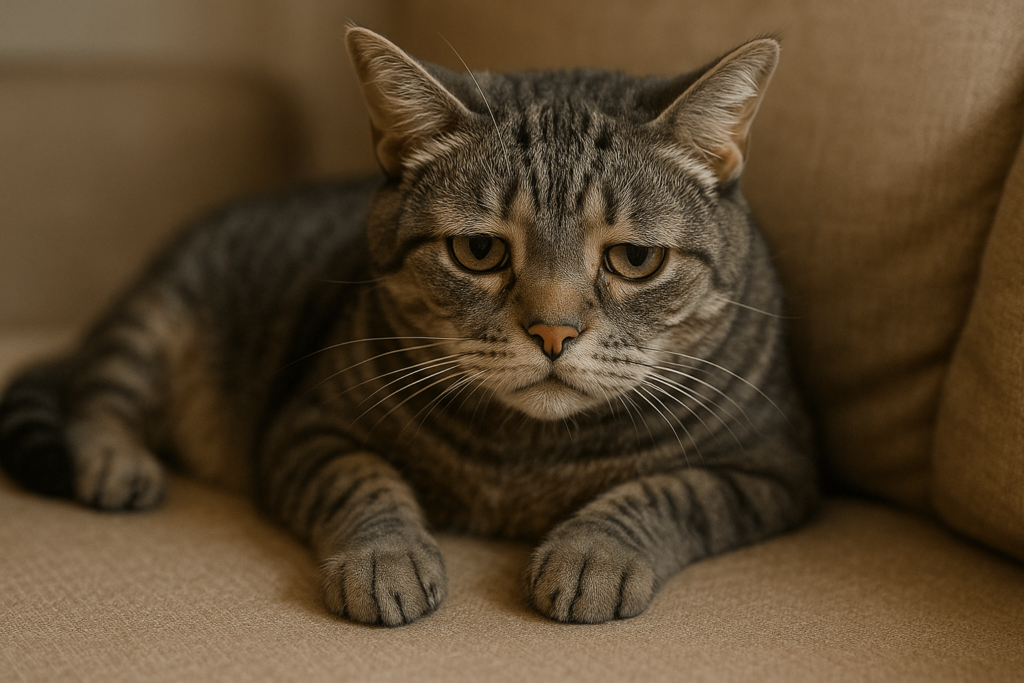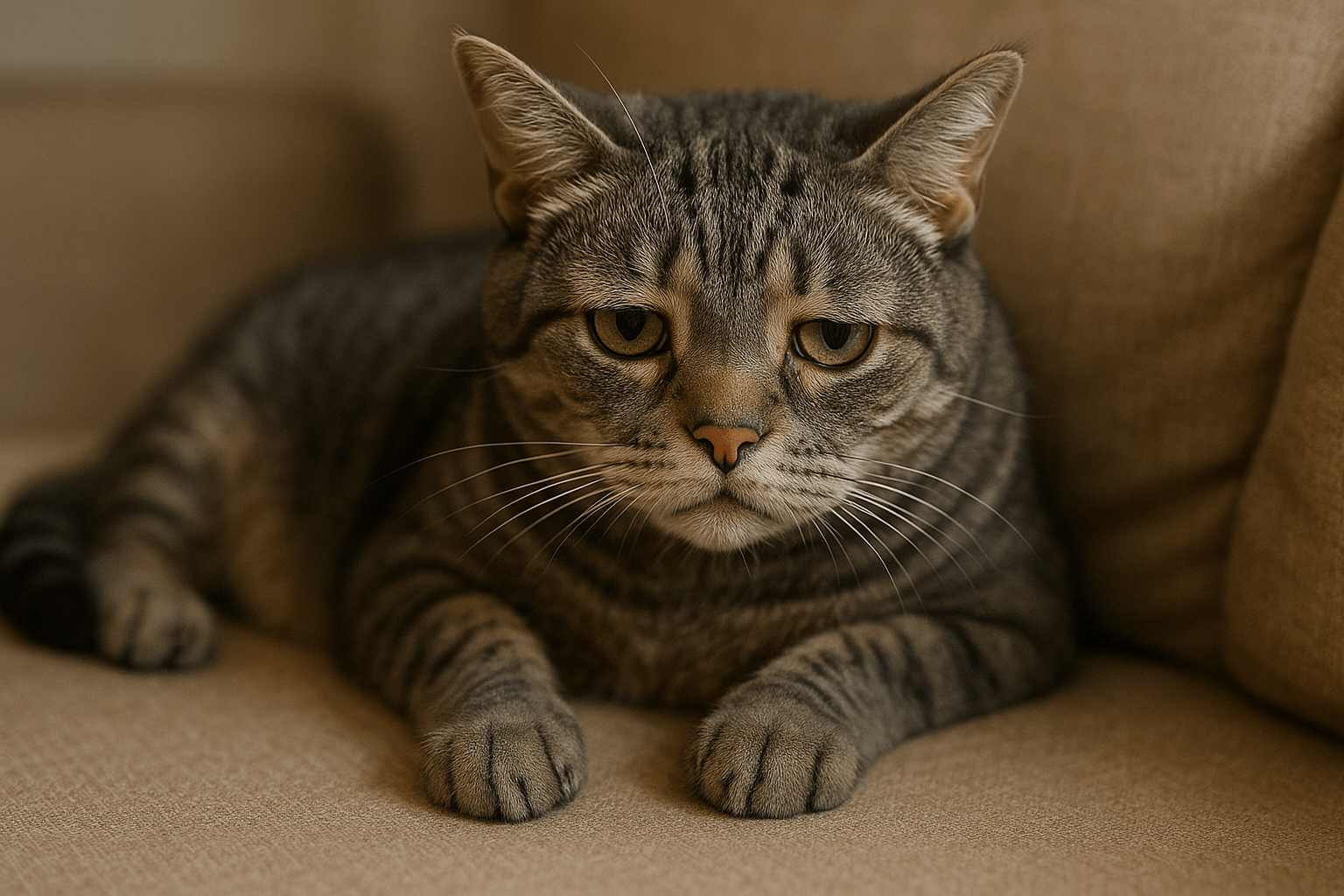Hypertrophic Cardiomyopathy Symptoms in Cats
Hypertrophic cardiomyopathy (HCM) is one of the most common heart conditions affecting cats, yet it often goes undetected until symptoms become severe. This condition causes the heart muscle to thicken abnormally, impairing its ability to pump blood effectively. While some cats may show no signs in the early stages, others exhibit subtle changes that can alert observant owners. Recognizing these symptoms early is crucial for managing the disease and improving your cat’s quality of life. In this guide, we’ll explore the signs of hypertrophic cardiomyopathy in cats, how it affects their health, and what you can do to support your feline friend.
Key Symptoms of Hypertrophic Cardiomyopathy in Cats
Identifying the symptoms of HCM is essential for early intervention. Since cats are masters at hiding illness, these signs may be subtle or mistaken for other issues. Here’s what to look out for:
Difficulty Breathing:
Cats with HCM may breathe rapidly or struggle to catch their breath, especially during physical activity or while resting.Lethargy and Weakness:
A noticeable decline in energy levels or reluctance to engage in play can indicate underlying heart problems.Loss of Appetite:
Cats with HCM may eat less or refuse food altogether due to discomfort or stress caused by their condition.Sudden Paralysis in Hind Legs:
Blood clots caused by HCM can lead to a condition called saddle thrombus, resulting in sudden paralysis of the hind limbs.Increased Heart Rate:
An abnormally fast heartbeat, even when the cat is calm, can signal heart dysfunction related to HCM.
By paying close attention to these symptoms, you can seek veterinary care promptly and potentially slow the progression of the disease.

How Hypertrophic Cardiomyopathy Affects Your Cat’s Body
HCM doesn’t just impact the heart—it can have widespread effects on your cat’s overall health. Understanding these consequences highlights the importance of timely diagnosis and treatment.
Impaired Blood Flow:
Thickened heart walls reduce the amount of blood pumped with each heartbeat, leading to poor circulation throughout the body.Fluid Accumulation in Lungs:
As the heart struggles to function, fluid may build up in the lungs, causing labored breathing and coughing.Increased Risk of Blood Clots:
Sluggish blood flow increases the likelihood of clot formation, which can block major arteries and cause severe complications.Fatigue and Muscle Weakness:
Reduced oxygen delivery to muscles and tissues leaves cats feeling weak and unable to perform normal activities.Organ Damage Over Time:
Chronic lack of proper blood flow can harm vital organs like the kidneys and liver, worsening your cat’s prognosis.
Recognizing these systemic effects underscores why managing HCM requires a comprehensive approach under veterinary guidance.
Check this guide 👉Understanding Cat Heart Murmurs: Best 7 Health Tips!
Check this guide 👉Can Cats Eat Chicken Hearts? Best 7 Expert Tips!
Check this guide 👉Understanding Heart Disease in Cats: Best 7 Health Tips!
Common Symptoms of HCM | Potential Complications of HCM |
|---|---|
Difficulty breathing | Fluid buildup in the lungs |
Rapid or irregular heartbeat | Formation of dangerous blood clots |
Lethargy and weakness | Sudden paralysis of hind legs |
Loss of appetite | Organ damage over time |
Collapse or fainting episodes | Decreased quality of life |
Diagnosing Hypertrophic Cardiomyopathy in Cats
Early detection of HCM is critical for effective management. Veterinarians use a combination of diagnostic tools to confirm the presence of the disease and assess its severity.
Physical Examination:
During routine check-ups, vets listen for abnormal heart sounds, such as murmurs or gallops, which may suggest HCM.Echocardiogram (Ultrasound):
This imaging test provides detailed pictures of the heart’s structure and function, confirming whether thickening is present.X-rays:
Chest X-rays help identify fluid accumulation in the lungs, a common complication of advanced HCM.Blood Tests:
Blood work evaluates organ function and rules out other conditions that might mimic HCM symptoms.Electrocardiogram (ECG):
An ECG measures electrical activity in the heart, identifying irregular rhythms associated with HCM.
Accurate diagnosis enables veterinarians to create tailored treatment plans that address your cat’s specific needs.
Managing Hypertrophic Cardiomyopathy in Cats
While there’s no cure for HCM, proper management can significantly improve your cat’s comfort and longevity. Here’s how veterinarians and pet owners collaborate to manage the condition.
Medications to Improve Heart Function:
Drugs like beta-blockers or ACE inhibitors help reduce strain on the heart and improve blood flow.Preventing Blood Clots:
Anticoagulant medications lower the risk of clot formation, protecting against life-threatening complications.Dietary Adjustments:
A balanced diet rich in taurine supports heart health, while avoiding excessive sodium helps reduce fluid retention.Regular Veterinary Check-Ups:
Frequent monitoring ensures any changes in the cat’s condition are addressed promptly.Minimizing Stress at Home:
Creating a calm environment reduces the workload on the heart and promotes overall well-being.
With consistent care and attention, many cats with HCM can live comfortably for years after diagnosis.
Early Warning Signs of HCM
Detecting hypertrophic cardiomyopathy in its early stages can make all the difference in managing the disease effectively. Keep an eye out for these subtle warning signs that may indicate something is amiss.
Subtle Changes in Behavior:
Cats may become less interactive or avoid activities they once enjoyed, signaling discomfort or fatigue.Muffled Heart Sounds:
Owners with stethoscopes or keen hearing might notice unusual silence or irregularities in their cat’s heartbeat.Occasional Panting:
Unlike dogs, cats rarely pant unless overheated or experiencing respiratory distress—a possible red flag for HCM.Swollen Abdomen:
Fluid buildup in the abdomen due to heart failure can cause bloating, visible upon close inspection.Cold Extremities:
Poor circulation can leave paws and ears feeling cooler than usual, indicating compromised blood flow.
Spotting these early indicators allows for timely veterinary intervention, potentially slowing the disease’s progression.
Preventive Measures for At-Risk Cats
If your cat belongs to a breed prone to HCM or has a family history of the disease, taking preventive steps can help minimize risks and promote heart health.
Genetic Testing:
For breeds with known HCM mutations, genetic testing identifies carriers before breeding decisions are made.Routine Vet Visits:
Regular wellness exams allow vets to monitor heart health and catch abnormalities early.Taurine-Rich Diet:
Ensuring adequate taurine intake supports cardiac function and prevents nutritional deficiencies linked to heart disease.Weight Management:
Maintaining a healthy weight reduces strain on the heart and lowers the risk of secondary complications.Avoiding Toxins:
Exposure to certain toxins, like lilies or chemicals, can exacerbate heart problems—keep your home cat-safe.
Proactive measures empower you to protect your cat’s heart and overall well-being.
Coping Strategies for Owners
Living with a cat diagnosed with HCM can be emotionally challenging, but adopting coping strategies helps both you and your pet navigate this journey together.
Educate Yourself About HCM:
Understanding the condition reduces fear and equips you to make informed decisions about your cat’s care.Build a Support Network:
Connect with online communities or local groups for emotional support and practical advice from fellow cat owners.Focus on Quality Time:
Cherish moments with your cat, engaging in low-stress activities like gentle grooming or quiet cuddles.Prepare for Emergencies:
Have a plan in place for sudden complications, including access to emergency vet services and financial resources.Celebrate Small Wins:
Acknowledge milestones, such as improved appetite or increased activity, as victories in your cat’s ongoing battle with HCM.
By focusing on love and resilience, you can create a nurturing environment that honors your cat’s spirit and strengthens your bond.
Frequently Asked Questions About Hypertrophic Cardiomyopathy in Cats
What causes hypertrophic cardiomyopathy in cats?
HCM is often hereditary, but factors like age, breed predisposition, and underlying health conditions can contribute.
Can HCM be cured?
Unfortunately, there’s no cure, but treatments can slow progression and improve quality of life.
Which breeds are more prone to HCM?
Maine Coons, Ragdolls, and British Shorthairs have higher risks due to genetic predispositions.
How long can a cat live with HCM?
Lifespan varies depending on the severity of the condition and how well it’s managed, ranging from months to several years.
Are there warning signs I should never ignore?
Yes, sudden paralysis, difficulty breathing, or collapse require immediate veterinary attention.
Supporting Your Cat Through Hypertrophic Cardiomyopathy
Hypertrophic cardiomyopathy is a serious condition, but with vigilance and proactive care, you can give your cat the best chance at a happy, fulfilling life. By recognizing the symptoms early, working closely with your veterinarian, and making thoughtful adjustments to your cat’s lifestyle, you can mitigate the impact of HCM and strengthen your bond with your feline companion. Remember, every small effort counts toward ensuring your cat feels loved, safe, and supported throughout their journey.
Canned Pumpkin for Cat Diarrhea: Best 7 Expert Tips! Natural remedy to firm stools, soothe upset bellies, and support gut health safely.
Can a Cat Give You Scabies? Best 7 Expert Tips! Discover the truth about feline mites, human skin risks, and how to protect yourself—without panic.
Cat Flea vs Human Flea: Best 7 Expert Tips! Discover the truth about bites, species, and how to eliminate infestations for good.
Weird Cat Behaviors: Best 7 Expert Tips! Discover why cats do strange things—and how to understand, not punish, their instincts for a happier home.





